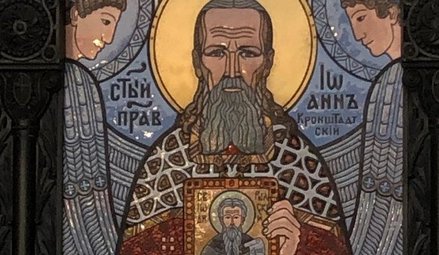- All the reasons
- By theme
- Jesus
- Mary
- The Church
- The Bible
- The authors of the Gospels were either eyewitnesses or close contacts of those eyewitnesses
- Onomastics support the historical reliability of the Gospels
- The New Testament was not altered
- The New Testament is the best-attested manuscript of Antiquity
- The Gospels were written too early after the facts to be legends
- Archaeological finds confirm the reliability of the New Testament
- The criterion of embarrassment proves that the Gospels tell the truth
- The dissimilarity criterion strengthens the case for the historical reliability of the Gospels
- 84 details in Acts verified by historical and archaeological sources
- The unique prophecies that announced the Messiah
- The time of the coming of the Messiah was accurately prophesied
- The prophet Isaiah's ultra accurate description of the Messiah's sufferings
- Daniel's "Son of Man" is a portrait of Christ
- The Apostles
- The martyrs
- Saint Blandina and the Martyrs of Lyon: the fortitude of faith (177 AD)
- Saint Lucy of Syracuse, virgin and martyr for Christ (d. 304)
- Thomas More: “The king’s good servant, but God’s first”
- The Martyrs of Compiègne (1794)
- The Vietnamese martyrs Father Andrew Dung-Lac and his 116 companions (17th-19th centuries)
- Blaise Marmoiton: the epic journey of a missionary to New Caledonia (d. 1847)
- Saint Maximilian Kolbe, Knight of the Immaculate (d. 1941)
- The monks
- Saint Benedict, father of Western monasticism (d. 550)
- Saint Bruno the Carthusian (d.1101): the miracle of a hidden life
- Blessed Angelo Agostini Mazzinghi: the Carmelite with flowers pouring from his mouth (d. 1438)
- Monk Abel of Valaam's accurate prophecies about Russia (d. 1841)
- The more than 33,000 miracles of Saint Charbel Maklouf (d. 1898)
- Saint Pio of Pietrelcina (d. 1968): How God worked wonders through "a poor brother who prays"
- The saints
- Saints Anne and Joachim, parents of the Virgin Mary (19 BC)
- Saint Nazarius, apostle and martyr (d. 68 or 70)
- Ignatius of Antioch: successor of the apostles and witness to the Gospel (d. 117)
- Saint Gregory the Miracle-Worker (d. 270)
- Saint Martin of Tours: patron saint of France, father of monasticism in Gaul, and the first great leader of Western monasticism (d. 397)
- Saint Lupus, the bishop who saved his city from the Huns (d. 623)
- Saint Dominic of Guzman (d.1221): an athlete of the faith
- Saint Francis, the poor man of Assisi (d. 1226)
- Saint Anthony of Padua: "everyone’s saint"
- Saint Simon Stock receives the scapular of Mount Carmel from the hands of the Virgin Mary
- The unusual boat of Saint Basil of Ryazan
- The extraordinary conversion of Michelina of Pesaro
- Saint Rita of Cascia: hoping against all hope
- Saint Anthony Mary Zaccaria, physician of bodies and souls (d. 1539)
- Saint Ignatius of Loyola (d. 1556): "For the greater glory of God"
- Brother Alphonsus Rodríguez, SJ: the "holy porter" (d. 1617)
- Martin de Porres returns to speed up his beatification (d. 1639)
- Virginia Centurione Bracelli: When God is the only goal, all difficulties are overcome (d.1651)
- Saint John Vianney (d. 1859): the global fame of a humble village priest
- Saints Louis and Zelie Martin, the parents of Saint Therese of Lisieux (d. 1894 and 1877)
- Saint Faustina, apostle of the Divine Mercy (d. 1938)
- Brother Marcel Van (d.19659): a "star has risen in the East"
- Doctors
- The mystics
- Visionaries
- María de Jesús de Ágreda, abbess and friend of the King of Spain
- Sister Benigna Consolata: the "Little Secretary of Merciful Love" (d. 1916)
- The 700 extraordinary visions of the Gospel received by Maria Valtorta (d. 1961)
- The amazing geological accuracy of Maria Valtorta's writings (d. 1961)
- Maria Valtorta's astronomic observations consistent with her dating system
- Discovery of an ancient princely house in Jerusalem, previously revealed to a mystic (d. 1961)
- The popes
- The great witnesses of the faith
- Christian civilisation
- The depth of Christian spirituality
- John of the Cross' Path to perfect union with God based on his own experience
- The dogma of the Trinity: an increasingly better understood truth
- The incoherent arguments against Christianity
- The "New Pentecost": modern day, spectacular outpouring of the Holy Spirit
- Cardinal Pierre de Bérulle (d.1629) on the mystery of the Incarnation
- Christ's interventions in history
- Marian apparitions and interventions
- The Life-giving Font of Constantinople
- Cotignac: the first apparitions of the Modern Era (1519)
- The Virgin Mary delivers besieged Christians in Cusco, Peru
- The victory of Lepanto and the feast of Our Lady of the Rosary (1571)
- The apparitions to Brother Fiacre (1637)
- Our Lady of Nazareth in Plancoët, Brittany (1644)
- Our Lady of Laghet (1652)
- Saint Joseph’s apparitions in Cotignac, France (1660)
- The Holy Name of Mary and the major victory of Vienna (1683)
- Heaven and earth meet in Colombia: the Las Lajas shrine (1754)
- "Consecrate your parish to the Immaculate Heart of Mary" (1836)
- At La Salette, Mary wept in front of the shepherds (1846)
- Our Lady of Champion, Wisconsin: the first and only approved apparition of Mary in the US (1859)
- Gietrzwald apparitions: heavenly help to a persecuted minority
- The silent apparition of Knock Mhuire in Ireland (1879)
- Mary "Abandoned Mother" appears in a working-class district of Lyon, France (1882)
- The thirty-three apparitions of the Virgin Mary in Beauraing (1932)
- Fontanelle-Montichiari apparitions of Our Lady "Rosa Mystica" (1947)
- Zeitoun apparitions
- The Virgin Mary comes to France's rescue by appearing at L'Ile Bouchard (1947)
- Maria Esperanza Bianchini and Mary, Mary, Reconciler of Peoples and Nations (1976)
- Luz Amparo and the El Escorial apparitions
- The extraordinary apparitions of Medjugorje and their worldwide impact
- The Virgin Mary prophesied the 1994 Rwandan genocide (1981)
- Our Lady of Soufanieh's apparition and messages to Myrna Nazzour (1982)
- The Virgin Mary heals a teenager, then appears to him dozens of times (1986)
- Angels and their manifestations
- Exorcisms in the name of Christ
- A wave of charity unique in the world
- Saint Camillus de Lellis, reformer of hospital care (c. 1560)
- Saint Vincent de Paul (d. 1660), apostle of charity
- Frédéric Ozanam, inventor of the Church's social doctrine (d. 1853)
- Pier Giorgio Frassati (d.1925): heroic charity
- Mother Teresa of Calcutta (d. 1997): an unshakeable faith
- Heidi Baker: Bringing God's love to the poor and forgotten of the world
- Amazing miracles
- Miraculous cures
- The royal touch: the divine thaumaturgic gift granted to French and English monarchs (11th-19th centuries)
- With 7,500 cases of unexplained cures, Lourdes is unique in the world (1858-today)
- Mariam, the "little thing of Jesus": a saint from East to West (d.1878)
- The miraculous cure of Blessed Maria Giuseppina Catanea
- The approved miracle for the canonization of Juan Diego Cuauhtlatoatzin (1990)
- Bruce Van Natta's intestinal regrowth: an irrefutable miracle (2007)
- Manouchak, operated on by Saint Charbel (2016)
- How Maya was cured from cancer at Saint Charbel's tomb (2018)
- Preserved bodies of the saints
- Bilocations
- Inedias
- Levitations
- Lacrimations and miraculous images
- Saint Juan Diego's tilma (1531)
- The Rue du Bac apparitions of the Virgin Mary to St. Catherine Labouré (Paris, 1830)
- Mary weeps in Syracuse (1953)
- Teresa Musco (d.1976): salvation through the Cross
- Soufanieh: A flow of oil from an image of the Virgin Mary, and oozing of oil from the face and hands of Myrna Nazzour (1982)
- Stigmates
- Eucharistic miracles
- Relics
- Jews discover the Messiah
- Max Jacob: a liberal gay Jewish artist converts to Catholicism (1909)
- Edith Stein - Saint Benedicta of the Cross: "A daughter of Israel who, during the Nazi persecutions, remained united with faith and love to the Crucified Lord, Jesus Christ, as a Catholic, and to her people as a Jew"
- Patrick Elcabache: a Jew discovers the Messiah after his mother is miraculously cured in the name of Jesus
- Cardinal Aron Jean-Marie Lustiger (d. 2007): Chosen by God
- Muslim conversions
- Buddhist conversions
- Atheist conversions
- God woos a poet's heart: the story of Paul Claudel's conversion (1886)
- C.S. Lewis, the reluctant convert (1931)
- The day André Frossard met Christ in Paris (1935)
- MC Solaar's rapper converts after experiencing Jesus' pains on the cross
- Father Sébastien Brière, converted at Medjugorje (2003)
- Franca Sozzani, the "Pope of fashion" who wanted to meet the Pope (2016)
- Testimonies of encounters with Christ
- Near-death experiences (NDEs) confirm Catholic doctrine on the Four Last Things
- The NDE of Saint Christina the Astonishing, a source of conversion to Christ (1170)
- Blessed Dina Bélanger (d. 1929): loving God and letting Jesus and Mary do their job
- Gabrielle Bossis: He and I
- André Levet's conversion in prison
- Journey between heaven and hell: a "near-death experience" (1971)
- Nahed Mahmoud Metwalli: from persecutor to persecuted (1987)
- The Bible verse that converted a young Algerian named Elie (2000)
- Providential stories
- The superhuman intuition of Saint Pachomius the Great
- Germanus of Auxerre's prophecy about Saint Genevieve's future mission, and protection of the young woman (446)
- The supernatural reconciliation of the Duke of Aquitaine (1134)
- Joan of Arc: "the most beautiful story in the world"
- John of Capistrano saves the Church and Europe (1456)
- Gury of Kazan: freed from his prison by a "great light" (1520)
- How Korea evangelized itself (18th century)
- The prophetic poem about John Paul II (1840)
- Thérèse of Lisieux saved countless soldiers during the Great War
- In 1947, a rosary crusade liberated Austria from the Soviets (1946-1955)
- The discovery of the tomb of Saint Peter in Rome (1949)
- A protective hand saved John Paul II and led to happy consequences (1981)
- Mary Undoer of Knots: Pope Francis' gift to the world (1986)
- Edmond Fricoteaux's providential discovery of the statue of Our Lady of France (1988)
- The Virgin Mary frees a Vietnamese bishop from prison (1988)
- Global launch of "Pilgrim Virgins" was made possible by God's Providence (1996)
- Who are we?
- Make a donation
< Find all the Reasons here

EVERY REASON TO BELIEVE
- Jesus
- Mary
- The Church
- The Bible
- The authors of the Gospels were either eyewitnesses or close contacts of those eyewitnesses
- Onomastics support the historical reliability of the Gospels
- The New Testament was not altered
- The New Testament is the best-attested manuscript of Antiquity
- The Gospels were written too early after the facts to be legends
- Archaeological finds confirm the reliability of the New Testament
- The criterion of embarrassment proves that the Gospels tell the truth
- The dissimilarity criterion strengthens the case for the historical reliability of the Gospels
- 84 details in Acts verified by historical and archaeological sources
- The unique prophecies that announced the Messiah
- The time of the coming of the Messiah was accurately prophesied
- The prophet Isaiah's ultra accurate description of the Messiah's sufferings
- Daniel's "Son of Man" is a portrait of Christ
- The Apostles
- The martyrs
- Saint Blandina and the Martyrs of Lyon: the fortitude of faith (177 AD)
- Saint Lucy of Syracuse, virgin and martyr for Christ (d. 304)
- Thomas More: “The king’s good servant, but God’s first”
- The Martyrs of Compiègne (1794)
- The Vietnamese martyrs Father Andrew Dung-Lac and his 116 companions (17th-19th centuries)
- Blaise Marmoiton: the epic journey of a missionary to New Caledonia (d. 1847)
- Saint Maximilian Kolbe, Knight of the Immaculate (d. 1941)
- The monks
- Saint Benedict, father of Western monasticism (d. 550)
- Saint Bruno the Carthusian (d.1101): the miracle of a hidden life
- Blessed Angelo Agostini Mazzinghi: the Carmelite with flowers pouring from his mouth (d. 1438)
- Monk Abel of Valaam's accurate prophecies about Russia (d. 1841)
- The more than 33,000 miracles of Saint Charbel Maklouf (d. 1898)
- Saint Pio of Pietrelcina (d. 1968): How God worked wonders through "a poor brother who prays"
- The saints
- Saints Anne and Joachim, parents of the Virgin Mary (19 BC)
- Saint Nazarius, apostle and martyr (d. 68 or 70)
- Ignatius of Antioch: successor of the apostles and witness to the Gospel (d. 117)
- Saint Gregory the Miracle-Worker (d. 270)
- Saint Martin of Tours: patron saint of France, father of monasticism in Gaul, and the first great leader of Western monasticism (d. 397)
- Saint Lupus, the bishop who saved his city from the Huns (d. 623)
- Saint Dominic of Guzman (d.1221): an athlete of the faith
- Saint Francis, the poor man of Assisi (d. 1226)
- Saint Anthony of Padua: "everyone’s saint"
- Saint Simon Stock receives the scapular of Mount Carmel from the hands of the Virgin Mary
- The unusual boat of Saint Basil of Ryazan
- The extraordinary conversion of Michelina of Pesaro
- Saint Rita of Cascia: hoping against all hope
- Saint Anthony Mary Zaccaria, physician of bodies and souls (d. 1539)
- Saint Ignatius of Loyola (d. 1556): "For the greater glory of God"
- Brother Alphonsus Rodríguez, SJ: the "holy porter" (d. 1617)
- Martin de Porres returns to speed up his beatification (d. 1639)
- Virginia Centurione Bracelli: When God is the only goal, all difficulties are overcome (d.1651)
- Saint John Vianney (d. 1859): the global fame of a humble village priest
- Saints Louis and Zelie Martin, the parents of Saint Therese of Lisieux (d. 1894 and 1877)
- Saint Faustina, apostle of the Divine Mercy (d. 1938)
- Brother Marcel Van (d.19659): a "star has risen in the East"
- Doctors
- The mystics
- Visionaries
- María de Jesús de Ágreda, abbess and friend of the King of Spain
- Sister Benigna Consolata: the "Little Secretary of Merciful Love" (d. 1916)
- The 700 extraordinary visions of the Gospel received by Maria Valtorta (d. 1961)
- The amazing geological accuracy of Maria Valtorta's writings (d. 1961)
- Maria Valtorta's astronomic observations consistent with her dating system
- Discovery of an ancient princely house in Jerusalem, previously revealed to a mystic (d. 1961)
- The popes
- The great witnesses of the faith
- Christian civilisation
- The depth of Christian spirituality
- John of the Cross' Path to perfect union with God based on his own experience
- The dogma of the Trinity: an increasingly better understood truth
- The incoherent arguments against Christianity
- The "New Pentecost": modern day, spectacular outpouring of the Holy Spirit
- Cardinal Pierre de Bérulle (d.1629) on the mystery of the Incarnation
- Christ's interventions in history
- Marian apparitions and interventions
- The Life-giving Font of Constantinople
- Cotignac: the first apparitions of the Modern Era (1519)
- The Virgin Mary delivers besieged Christians in Cusco, Peru
- The victory of Lepanto and the feast of Our Lady of the Rosary (1571)
- The apparitions to Brother Fiacre (1637)
- Our Lady of Nazareth in Plancoët, Brittany (1644)
- Our Lady of Laghet (1652)
- Saint Joseph’s apparitions in Cotignac, France (1660)
- The Holy Name of Mary and the major victory of Vienna (1683)
- Heaven and earth meet in Colombia: the Las Lajas shrine (1754)
- "Consecrate your parish to the Immaculate Heart of Mary" (1836)
- At La Salette, Mary wept in front of the shepherds (1846)
- Our Lady of Champion, Wisconsin: the first and only approved apparition of Mary in the US (1859)
- Gietrzwald apparitions: heavenly help to a persecuted minority
- The silent apparition of Knock Mhuire in Ireland (1879)
- Mary "Abandoned Mother" appears in a working-class district of Lyon, France (1882)
- The thirty-three apparitions of the Virgin Mary in Beauraing (1932)
- Fontanelle-Montichiari apparitions of Our Lady "Rosa Mystica" (1947)
- Zeitoun apparitions
- The Virgin Mary comes to France's rescue by appearing at L'Ile Bouchard (1947)
- Maria Esperanza Bianchini and Mary, Mary, Reconciler of Peoples and Nations (1976)
- Luz Amparo and the El Escorial apparitions
- The extraordinary apparitions of Medjugorje and their worldwide impact
- The Virgin Mary prophesied the 1994 Rwandan genocide (1981)
- Our Lady of Soufanieh's apparition and messages to Myrna Nazzour (1982)
- The Virgin Mary heals a teenager, then appears to him dozens of times (1986)
- Angels and their manifestations
- Exorcisms in the name of Christ
- A wave of charity unique in the world
- Saint Camillus de Lellis, reformer of hospital care (c. 1560)
- Saint Vincent de Paul (d. 1660), apostle of charity
- Frédéric Ozanam, inventor of the Church's social doctrine (d. 1853)
- Pier Giorgio Frassati (d.1925): heroic charity
- Mother Teresa of Calcutta (d. 1997): an unshakeable faith
- Heidi Baker: Bringing God's love to the poor and forgotten of the world
- Amazing miracles
- Miraculous cures
- The royal touch: the divine thaumaturgic gift granted to French and English monarchs (11th-19th centuries)
- With 7,500 cases of unexplained cures, Lourdes is unique in the world (1858-today)
- Mariam, the "little thing of Jesus": a saint from East to West (d.1878)
- The miraculous cure of Blessed Maria Giuseppina Catanea
- The approved miracle for the canonization of Juan Diego Cuauhtlatoatzin (1990)
- Bruce Van Natta's intestinal regrowth: an irrefutable miracle (2007)
- Manouchak, operated on by Saint Charbel (2016)
- How Maya was cured from cancer at Saint Charbel's tomb (2018)
- Preserved bodies of the saints
- Bilocations
- Inedias
- Levitations
- Lacrimations and miraculous images
- Saint Juan Diego's tilma (1531)
- The Rue du Bac apparitions of the Virgin Mary to St. Catherine Labouré (Paris, 1830)
- Mary weeps in Syracuse (1953)
- Teresa Musco (d.1976): salvation through the Cross
- Soufanieh: A flow of oil from an image of the Virgin Mary, and oozing of oil from the face and hands of Myrna Nazzour (1982)
- Stigmates
- Eucharistic miracles
- Relics
- Jews discover the Messiah
- Max Jacob: a liberal gay Jewish artist converts to Catholicism (1909)
- Edith Stein - Saint Benedicta of the Cross: "A daughter of Israel who, during the Nazi persecutions, remained united with faith and love to the Crucified Lord, Jesus Christ, as a Catholic, and to her people as a Jew"
- Patrick Elcabache: a Jew discovers the Messiah after his mother is miraculously cured in the name of Jesus
- Cardinal Aron Jean-Marie Lustiger (d. 2007): Chosen by God
- Muslim conversions
- Buddhist conversions
- Atheist conversions
- God woos a poet's heart: the story of Paul Claudel's conversion (1886)
- C.S. Lewis, the reluctant convert (1931)
- The day André Frossard met Christ in Paris (1935)
- MC Solaar's rapper converts after experiencing Jesus' pains on the cross
- Father Sébastien Brière, converted at Medjugorje (2003)
- Franca Sozzani, the "Pope of fashion" who wanted to meet the Pope (2016)
- Testimonies of encounters with Christ
- Near-death experiences (NDEs) confirm Catholic doctrine on the Four Last Things
- The NDE of Saint Christina the Astonishing, a source of conversion to Christ (1170)
- Blessed Dina Bélanger (d. 1929): loving God and letting Jesus and Mary do their job
- Gabrielle Bossis: He and I
- André Levet's conversion in prison
- Journey between heaven and hell: a "near-death experience" (1971)
- Nahed Mahmoud Metwalli: from persecutor to persecuted (1987)
- The Bible verse that converted a young Algerian named Elie (2000)
- Providential stories
- The superhuman intuition of Saint Pachomius the Great
- Germanus of Auxerre's prophecy about Saint Genevieve's future mission, and protection of the young woman (446)
- The supernatural reconciliation of the Duke of Aquitaine (1134)
- Joan of Arc: "the most beautiful story in the world"
- John of Capistrano saves the Church and Europe (1456)
- Gury of Kazan: freed from his prison by a "great light" (1520)
- How Korea evangelized itself (18th century)
- The prophetic poem about John Paul II (1840)
- Thérèse of Lisieux saved countless soldiers during the Great War
- In 1947, a rosary crusade liberated Austria from the Soviets (1946-1955)
- The discovery of the tomb of Saint Peter in Rome (1949)
- A protective hand saved John Paul II and led to happy consequences (1981)
- Mary Undoer of Knots: Pope Francis' gift to the world (1986)
- Edmond Fricoteaux's providential discovery of the statue of Our Lady of France (1988)
- The Virgin Mary frees a Vietnamese bishop from prison (1988)
- Global launch of "Pilgrim Virgins" was made possible by God's Providence (1996)
Les saints
n°158
Spain
1533-1617
Brother Alphonsus Rodríguez, SJ: the "holy doorkeeper"
Born in 1533 in Segovia, Spain, Alonso (Alphonsus) Rodríguez had to leave school at the age of 14 to help his mother run the family business after his father, a wool merchant, died. He married and had three children, all of whom soon died, along with their mother. His business was in decline. Rodríguez turned to the Jesuits and deepened his intimate union with God. The provincial of Valencia eventually welcomed him into the Society of Jesus. Sent to Palma de Mallorca, he remained a porter at the Montesion convent for the rest of his long life. A laybrother known for his holiness and gift of prophecy, Rodríguez belongs to the host of humble and obscure saints who lived in service to others and in divine adoration. Leo XIII canonised him in 1888.
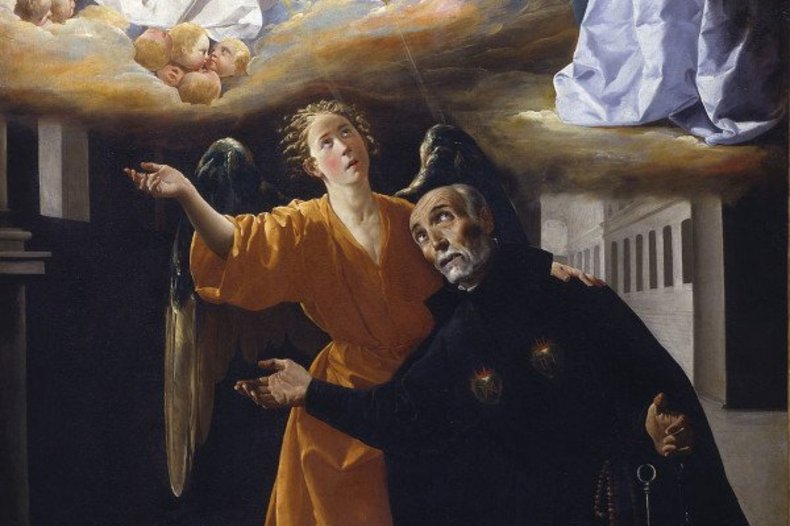
Francisco de Zurbarán, The Vision of Alfonso Rodríguez, 1630, San Ferdinand Royal Academy of Fine Arts, Madrid /© CC0/wikimedia
Reasons to believe:
- It was only after his death, in 1617, that Rodríguez's memoir was discovered (Memory of Some of the Things That Have Happened to a Certain Person). These spiritual notes confirm his immense humility, reveal the depth and quality of his interior life, and show an intelligence of heart inexplicable without the help of grace.
Alphonsus Rodríguez received several mystical graces, ecstasies and visions of Christ, his mother Mary and the saints. "My heart, full of love for God, is extremely eager to please Him; and to be pleasing to Him, I am ready to renounce everything in this world, and myself [...] I go to Jesus and Mary and converse with them; they answer me with sweet suavity and make known to me their holy will, teaching me at the same time how to carry it out"( Memoir written in June 1615).
- The countless people who met him at the convent door, even without knowing him, testified to his extraordinary kindness. Brother Alphonsus transcended the boring and repetitive task of doorkeeper by seeing in every visitor another Christ.
- Despite his simplicity and lack of education, he was a teacher and adviser to Saint Peter Claver, one of the great evangelisers of South America.
- Brother Alphonsus Rodríguez is renowned for his perfect and constant obedience. He was convinced that by carrying out the orders of his superiors, he was obeying to Christ.
- Since Pope Urban VIII, the canonisation of a person implies the recognition of the heroic nature of his virtues and the authentication of several miracles due to his intercession. This was the case for Alphonsus Rodríguez: the sudden and complete cures of Joachima Rocha y Rayo (spleen cancer, gastritis and extensive peritonitis, Mallorca, July 1830) and Sister Marie Alphonse Gallis (stomach cancer, Saint Colette monastery, Antwerp, 1858) are especially worth mentioning.
Summary:
Born during the golden age of Spain (16th century), Alonso Rodríguez was by no means a conquistador, hidalgo or romancero character. His story didn't start out too badly, however, from a worldly point of view: his father was a wealthy wool and fabric merchant from Segovia, who let one of the first French companions of Saint Ignatius of Loyola, Peter Faber, stay in his house when he stayed in Segovia (Faber even prepared Alonso for his First Holy Communion) Alonso was already associated, without his knowing it, to the Society of Jesus from childhood.
At the age of twelve, he was sent to study at a Jesuit college. Unfortunately, his father's sudden death forced him to interrupt his studies after two years: he had to take over the family business with his mother. At the age of twenty-seven, he married Maria Suarez, with whom he had three children. Sadly, his wife died, as did each of the children. To make matters worse, his business, badly managed and taxed, went bankrupt. At the age of thirty-five, the future Saint Alphonsus Rodríguez was alone, ruined, widowed and distraught. He knocked on the door of the Jesuits, who turned him down on the ground that he was too old, not learned enough, and in poor health.
Not one to give up hope, Alphonsus persevered and resumed his studies, but he was turned down again. Even when he tried to become a simple friar, he was rejected, both in Segovia nor in Valencia, until an intuitive provincial realised that Alphonsus was a favored soul precisely because of his simplicity. Finally, on January 31, 1571, at the age of thirty-seven, Alphonsus entered the Jesuit novitiate.
He was soon transferred to the Montesion College in Palma de Mallorca as a porter. This mundane and repetitive task required him to welcome visitors, carry the mail, run errands, give alms to the needy, console the sick at heart, and give advice to the troubled. No one approached him without feeling the immense goodness that emanated from him. Alphonsus greeted every visitor as if he was Christ himself: "What you did for the least of my brothers, you did for me."
From 1579 until his death in 1617, many students benefited from the affection and love of Brother Alphonsus, the humble friar. Among them was Saint Peter Claver who, as a young man, came to that novitiate to discern his vocation. And it was Brother Alphonsus, already 72 years old, who told Claver that God wanted him to spend his life in service in the colonies of New Spain, and frequently urged the young student to accept that calling. Both Rodríguez and Claver were canonised in 1888 by Pope Leo XIII.
However, it was only after the old porter had ascended to heaven that his Spiritual Notes and Memoirs revealed the depth of his soul and the ecstasies and apparitions he experienced.
Saint Alphonsus Rodríguez also became the patron saint of all Jesuit brothers.
Jacques de Guillebon is an essayist and journalist. He is a contributor to the Catholic magazine La Nef.
Going further:
The life of Blessed Alphonsus Rodriguez, lay-brother of the Society of Jesus by Henry Foley, London : Burns and Oates, 1873, available online
More information:- "In Honour Of St. Alphonsus Rodriguez" Poem by Gerard Manley Hopkins
- Catholic Answers Article "A Saint for the Struggle with Scrupulosity" by Mark A. McNeil
THE REASONS FOR THE WEEK
L’Église ,
Les saints ,
Les apparitions et interventions mariales

Saint Simon Stock reçoit le scapulaire du Mont Carmel des mains de la Vierge Marie
Les saints
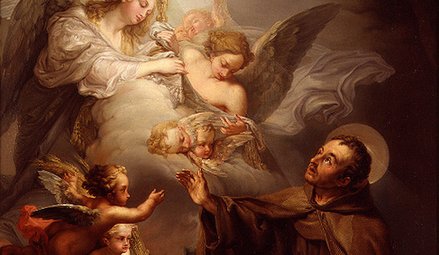
Saint Pascal Baylon, humble berger
Les saints ,
Corps conservés des saints ,
Stigmates

Sainte Rita de Cascia, celle qui espère contre toute espérance
Les saints

L’étrange barque de saint Basile de Riazan
Les saints ,
Corps conservés des saints
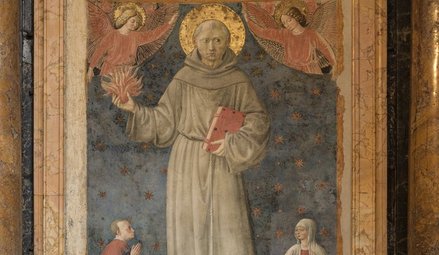
Saint Antoine de Padoue, le « saint que tout le monde aime »
Les saints ,
Conversions d'athées ,
Témoignages de rencontres avec le Christ
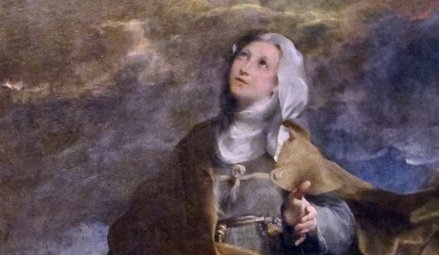
L’extraordinaire conversion de Micheline de Pesaro
Les saints ,
Les anges et leurs manifestations ,
Corps conservés des saints
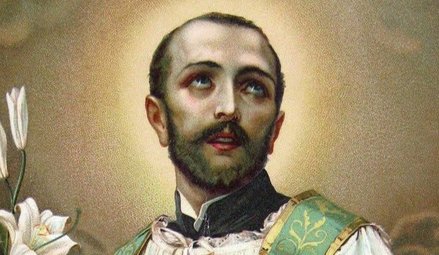
Saint Antoine-Marie Zaccaria, médecin des corps et des âmes
Les saints

Les saints époux Louis et Zélie Martin
Les saints ,
La profondeur de la spiritualité chrétienne
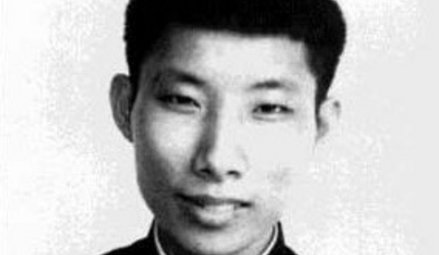
Frère Marcel Van, une « étoile s’est levée en Orient »
Les saints
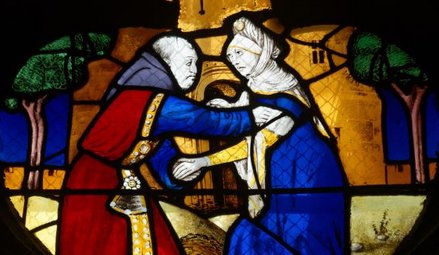
Sainte Anne et saint Joachim, parents de la Vierge Marie
Les saints
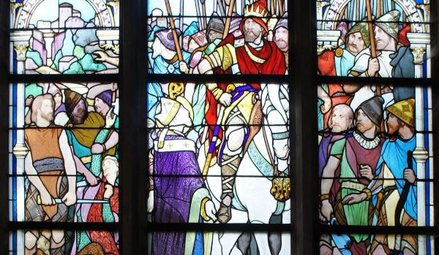
Saint Loup, l’évêque qui fit rebrousser chemin à Attila
Les saints
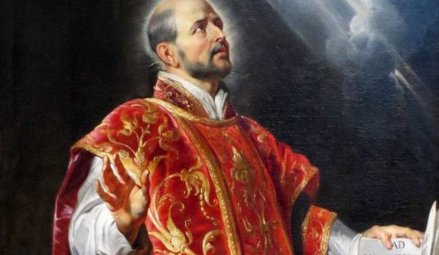
Saint Ignace de Loyola : à la plus grande gloire de Dieu
Les saints

Saint Nazaire, apôtre et martyre
Les saints ,
Des miracles étonnants ,
Guérisons miraculeuses

Saint Jean-Marie Vianney, la gloire mondiale d’un petit curé de campagne
Les moines ,
Les saints
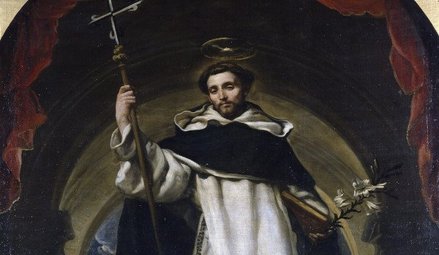
Saint Dominique de Guzman, athlète de la foi
Les saints ,
Témoignages de rencontres avec le Christ
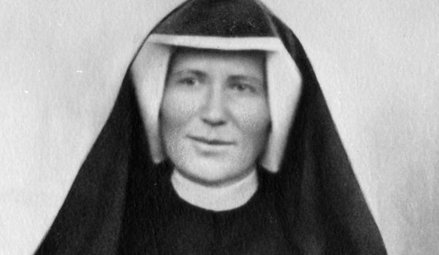
Sainte Faustine, apôtre de la divine miséricorde
Les moines ,
Lévitations ,
Stigmates ,
Conversions d'athées ,
Témoignages de rencontres avec le Christ
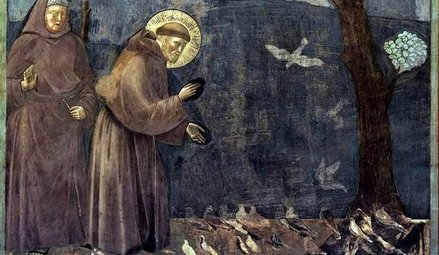
Saint François, le pauvre d’Assise
Les saints ,
Les grands témoins de la foi

Ignace d’Antioche : successeur des apôtres et témoin de l’Évangile
Les saints

Antoine-Marie Claret, un tisserand devenu ambassadeur du Christ
Les saints
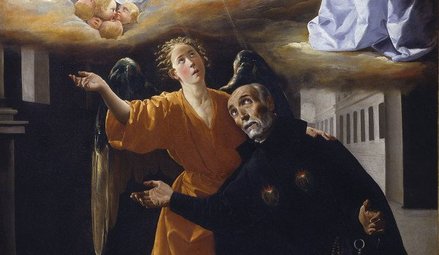
Alphonse Rodriguez, le saint portier jésuite
Les saints ,
Des miracles étonnants ,
Bilocations

Martin de Porrès revient hâter sa béatification
Les saints ,
Des miracles étonnants
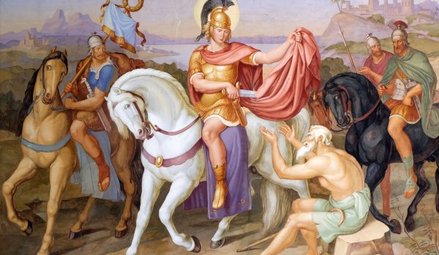
Saint Martin de Tours, père de la France chrétienne
Les saints
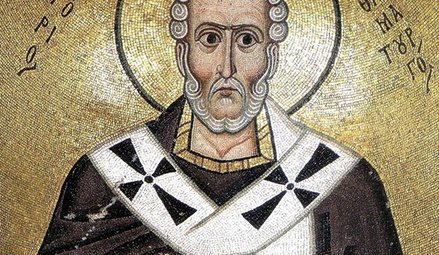
Saint Grégoire le Thaumaturge
Les saints ,
Une vague de charité unique au monde ,
Corps conservés des saints

Virginia Centurione Bracelli : quand toutes les difficultés s’aplanissent
Les saints
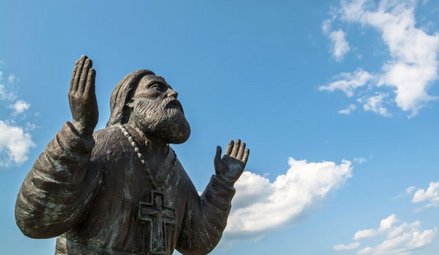
Lorsque le moine Seraphim contemple le Saint-Esprit
Les saints ,
Les apparitions et interventions mariales ,
Des miracles étonnants ,
Corps conservés des saints
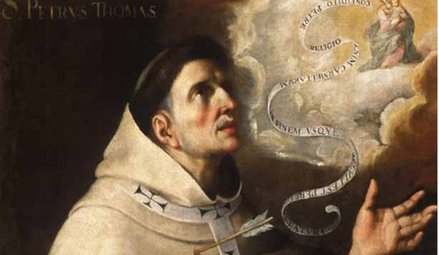
Saint Pierre Thomas : une confiance en la Vierge Marie à toute épreuve
Les saints
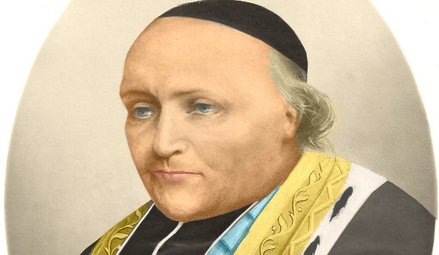
À Grenoble, le « saint abbé Gerin »
Les saints ,
Les apparitions et interventions mariales ,
Guérisons miraculeuses
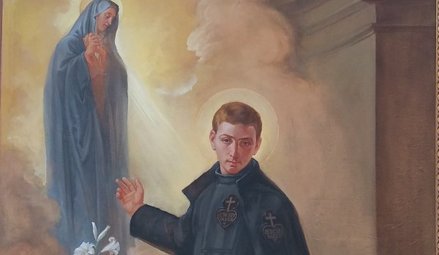
Gabriel de l’Addolorata, le « jardinier de la Sainte Vierge »
Les saints ,
Les mystiques ,
Des miracles étonnants ,
Corps conservés des saints ,
Histoires providentielles
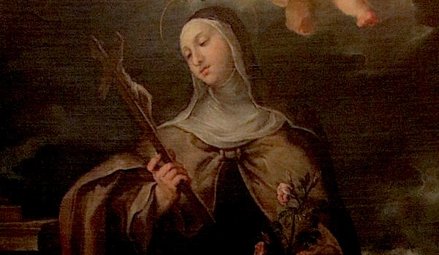
Sainte Rose de Viterbe : comment la prière change le monde
Les saints
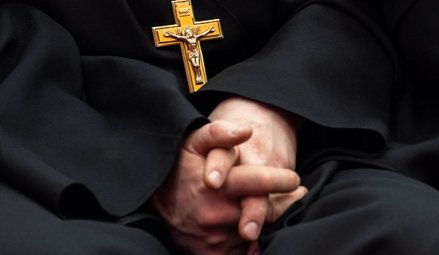
Bienheureux Francisco Palau y Quer, un amoureux de l’Église
Les saints ,
Les apparitions et interventions mariales
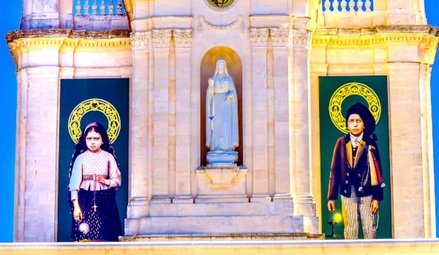
La maturité surnaturelle de Francisco Marto, « consolateur de Dieu »
L’Église ,
Les saints ,
Les apparitions et interventions mariales

San Simón Stock recibe el escapulario del Carmen de manos de la Virgen María
Les saints

San Pascual Baylon, humilde pastor
Les saints ,
Corps conservés des saints ,
Stigmates

Santa Rita de Casia, la que espera contra toda esperanza
Les saints ,
Histoires providentielles
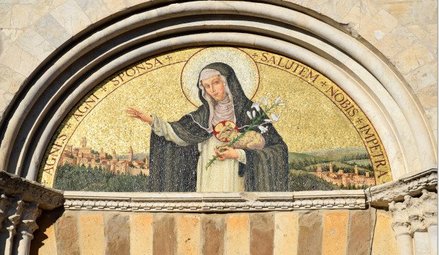
L’absolue confiance en Dieu de sainte Agnès de Montepulciano
Les saints

Sainte Catherine de Gênes, ou le feu de l’amour de Dieu
Les saints

Sainte Marie de l’Incarnation, « la sainte Thérèse du Nouveau Monde »
Les saints

Rosa Venerini ou la parfaite volonté de Dieu
L’Église ,
Les saints ,
Les apparitions et interventions mariales

Saint Simon Stock reçoit le scapulaire du Mont Carmel des mains de la Vierge Marie
Les saints

Saint Paschal Baylón: from humble shepherd to the glory of sainthood
Les saints ,
Corps conservés des saints ,
Stigmates

Saint Rita of Cascia: hoping against all hope
Les saints
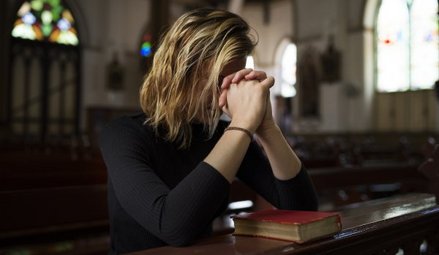
Camille de Soyécourt, comblée par Dieu de la vertu de force
L’Église ,
Les saints ,
Les apparitions et interventions mariales

San Simone Stock ricevette dalle mani della Vergine Maria lo scapolare del Monte Carmelo
Les saints

San Pascal Baylon, umile pastore
Les saints

François de Girolamo lit dans les cœurs
Les saints ,
La profondeur de la spiritualité chrétienne

Hermano Marcel Van, "una estrella ha nacido en Oriente".
Les saints ,
Corps conservés des saints ,
Stigmates

Santa Rita da Cascia, colei che spera contro ogni speranza
Les saints

La extraña barca de San Basilio de Riazán
Les saints
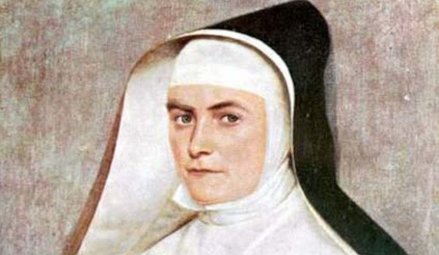
Jeanne-Antide Thouret : partout où Dieu voudra l’appeler
Les saints

The unusual boat of Saint Basil of Ryazan
Les saints ,
Corps conservés des saints

Saint Anthony of Padua: "everyone’s saint"
Les saints ,
Conversions d'athées ,
Témoignages de rencontres avec le Christ

The extraordinary conversion of Michelina of Pesaro
Les saints ,
Corps conservés des saints

San Antonio de Padua, el "santo que todo el mundo ama".
Les saints ,
Conversions d'athées ,
Témoignages de rencontres avec le Christ

La extraordinaria conversión de Micheline de Pesaro
Les saints
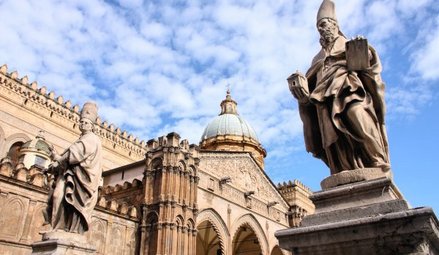
Saint Augustin de Cantorbéry apporte la bonne nouvelle sur la terre des Angles
Les saints ,
Les anges et leurs manifestations ,
Corps conservés des saints

Saint Anthony Mary Zaccaria, physician of bodies and souls
Les saints ,
La profondeur de la spiritualité chrétienne

Brother Marcel Van: a "star has risen in the East"
Les saints

Saints Louis and Zelie Martin
Les saints

La strana barca di San Basilio di Ryazan
Les saints ,
Corps conservés des saints

Sant'Antonio da Padova, il "santo che tutti amano"
Les saints ,
Les anges et leurs manifestations ,
Corps conservés des saints

San Antonio María Zaccaria, médico de cuerpos y almas
Les saints

Los Santos esposos Luis y Celia Martin
Les saints
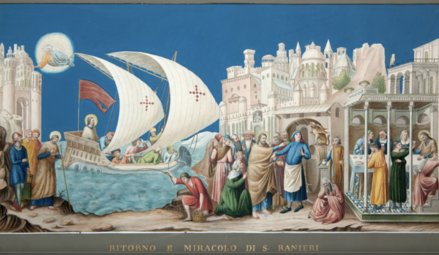
Saint Rainer de Pise : la conversion miraculeuse d’un riche négociant
Les saints ,
Conversions d'athées ,
Témoignages de rencontres avec le Christ

La straordinaria conversione di Michelina da Pesaro
Les saints
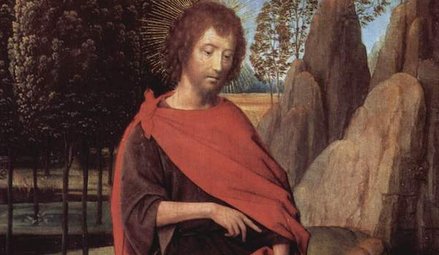
Saint Jean-Baptiste, témoin du Christ annoncé par les prophètes
Les saints ,
Les anges et leurs manifestations ,
Corps conservés des saints

Sant'Antonio Maria Zaccaria, medico del corpo e dell'anima
Les saints
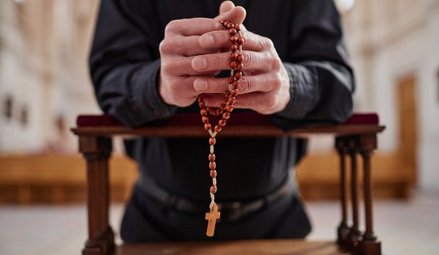
Saint Bernardin Realino répond à l’appel divin
Les saints

Santa Ana y San Joaquín, padres de la Virgen María
Les saints

San Nazario, apóstol y mártir
Les saints

San Lupo, el obispo que hizo retroceder a Atila
Les saints ,
Corps conservés des saints
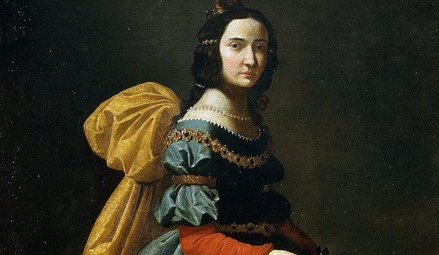
Sainte Élisabeth du Portugal, une rose en royauté
Les saints

San Ignacio de Loyola: a la mayor gloria de Dios
Les saints ,
Des miracles étonnants ,
Guérisons miraculeuses

San Juan María Vianney, la gloria mundial de un cura de pueblo
Les moines ,
Les saints

Santo Domingo de Guzmán, atleta de la fe
Les saints ,
La profondeur de la spiritualité chrétienne

Fratel Marcel Van, "una stella è sorta in Oriente"
Les saints

I santi sposi Louis e Zélie Martin
Les saints

Saints Anne and Joachim, parents of the Virgin Mary
Les saints

La confiance en Dieu de sainte Marie-Madeleine Postel
Les saints

Saint Nazarius, apostle and martyr
Les saints

Saint Lupus, the bishop who saved his city from the Huns
Les saints

Saint Ignatius of Loyola: "For the greater glory of God"
Les saints

Sant'Anna e San Gioacchino, genitori della Vergine Maria
Les saints

San Nazario, apostolo e martire
Les saints

San Lupo, il vescovo che fece indietreggiare Attila
Les saints

Sant'Ignazio di Loyola: per la maggior gloria di Dio
Les saints ,
Des miracles étonnants ,
Guérisons miraculeuses

Saint John Vianney (d. 1859): the global fame of a humble village priest
Les moines ,
Les saints

Saint Dominic de Guzman: an athlete of the faith
Les saints ,
Des miracles étonnants ,
Guérisons miraculeuses

San Giovanni Maria Vianney, la gloria mondiale di un piccolo curato di campagna
Les moines ,
Les saints

San Domenico di Guzmán, atleta della fede
Les saints ,
Témoignages de rencontres avec le Christ

Santa Faustina, apóstol de la Divina Misericordia
Les saints
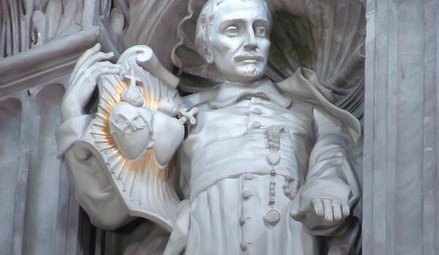
Jean Eudes, époux du Cœur Immaculé de Marie
Les saints ,
Témoignages de rencontres avec le Christ

Saint Faustina, apostle of the Divine Mercy
Les saints
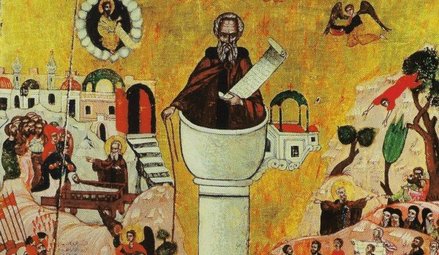
Syméon monte sur une colonne pour demeurer seul avec le Christ
Les saints ,
Témoignages de rencontres avec le Christ

Santa Faustina, apostola della divina misericordia
Les moines ,
Lévitations ,
Stigmates ,
Conversions d'athées ,
Témoignages de rencontres avec le Christ

Saint Francis, the poor man of Assisi
Les moines ,
Lévitations ,
Stigmates ,
Conversions d'athées ,
Témoignages de rencontres avec le Christ

San Francisco, el pobre de Asís
Les saints ,
Les grands témoins de la foi

Ignacio de Antioquía: sucesor de los apóstoles y testigo del Evangelio
Les saints ,
Les grands témoins de la foi

Ignatius of Antioch: successor of the apostles and witness to the Gospel
Les moines ,
Lévitations ,
Stigmates ,
Conversions d'athées ,
Témoignages de rencontres avec le Christ

San Francesco, il poverello d'Assisi
Les saints
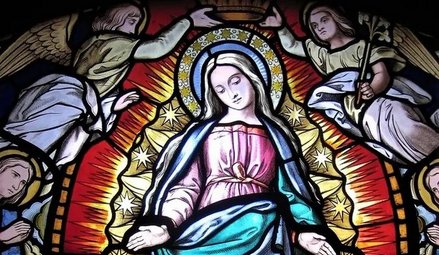
Thérèse Couderc remet tout entre les mains de Marie
Les saints

Brother Alphonsus Rodríguez, SJ: the "holy doorkeeper"
Les saints

Alonso Rodríguez, el santo jesuita portero
Les saints ,
Des miracles étonnants ,
Bilocations

Martin de Porrès regresa para acelerar su beatificación
Les saints ,
Des miracles étonnants ,
Bilocations

Martin de Porres returns to speed up his beatification
Les saints ,
Les grands témoins de la foi

Newman cherche la véritable Église du Christ
Les saints ,
Les grands témoins de la foi

Ignazio di Antiochia: successore degli apostoli e testimone del Vangelo
Les saints

Dieu parle par la bouche de la bienheureuse Madeleine de Panattieri
Les saints ,
Des miracles étonnants

Saint Martin of Tours: patron saint of France, father of monasticism in Gaul, and the first great leader of Western monasticism
Les saints
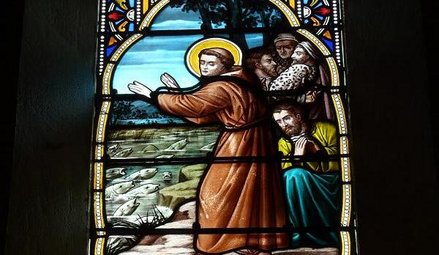
La « légende » des saints n’est pas un mythe
Les saints
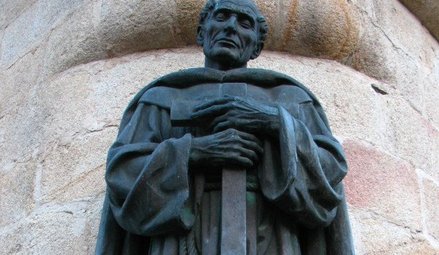
Pierre d’Alcantara, à qui Dieu ne refuse rien
Les saints

Saint Gregory the Miracle-Worker
Les saints

Alfonso Rodríguez, il santo portinaio gesuita
Les saints

Hilaire de Mende, un saint évêque thaumaturge
Les saints
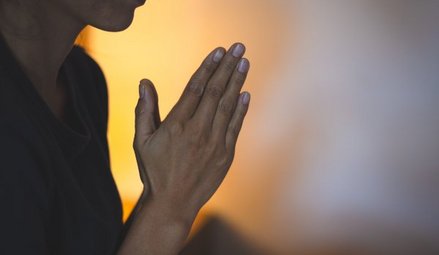
Celina Chludzinska, une vie entre les mains de Dieu
Les saints ,
Des miracles étonnants

San Martín de Tours, padre de la Francia cristiana
Les saints ,
Des miracles étonnants ,
Bilocations

Martín de Porres torna per accelerare la sua beatificazione
Les saints

San Gregorio Taumaturgo
Les saints
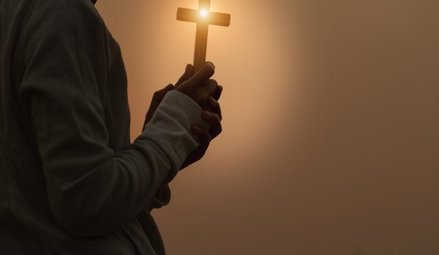
Le succès étonnant des prédications de saint Ange d’Acri
Les saints ,
Des miracles étonnants

San Martino di Tours, padre della Francia cristiana
Les saints

San Gregorio Taumaturgo
Les saints ,
Une vague de charité unique au monde ,
Corps conservés des saints

Virginia Centurione Bracelli: When God is the only goal, all difficulties are overcome
Les saints ,
Une vague de charité unique au monde ,
Corps conservés des saints

Virginia Centurione Bracelli: cuando las cosas se ponen difíciles
Les saints
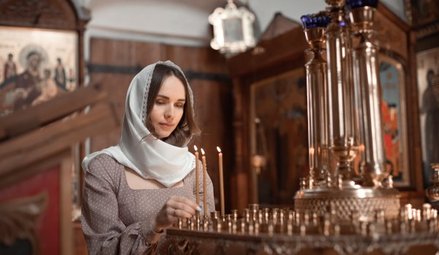
Le mariage virginal de bienheureuse Delphine de Sabran
Les saints
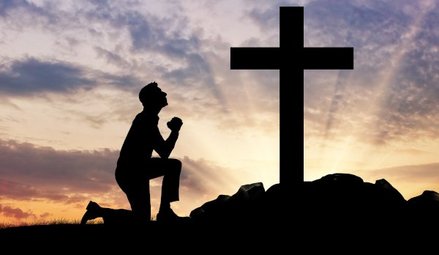
Jacques de la Marche transmet la foi catholique à travers l’Europe
Les saints ,
Une vague de charité unique au monde ,
Corps conservés des saints

Virginia Centurione Bracelli: quando tutte le difficoltà vengono meno
Les saints ,
Guérisons miraculeuses
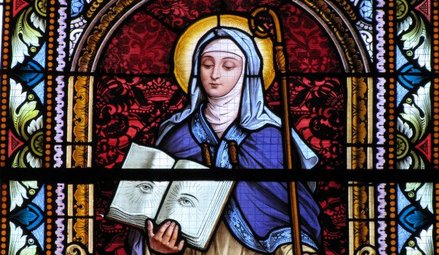
Née aveugle, sainte Odile retrouve la vue lors de son baptême
Les saints
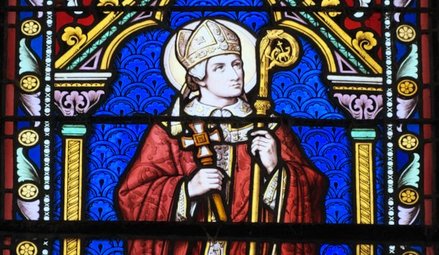
Gatien, apôtre de la Touraine
Les saints
